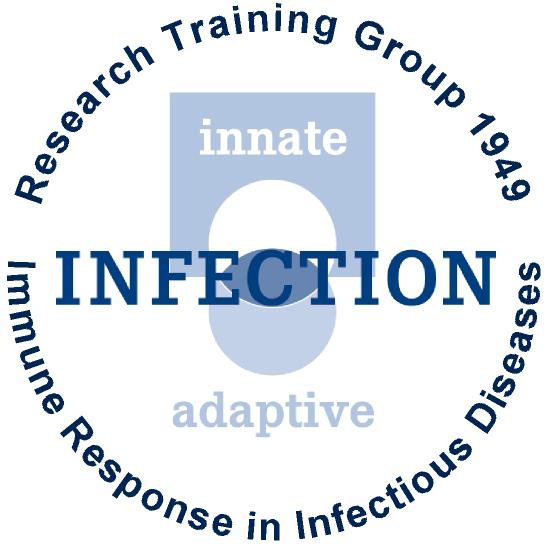Area III - Project 12 - Matthias Tenbusch

Principal Investigator:
Prof. Dr. rer. nat. Matthias Tenbusch
Institute of Molecular and Medical Virology,
Ruhr University Bochum
Signal molecules of the innate immune response as
adjuvants for gene-based vaccines
In this project, we want to address the potential of innate signal molecules as adjuvants in gene-based vaccination protocols against Influenza A viruses (IAV). Replication-defective adenoviral vectors expressing IAV-derived antigens in combination with proteins of key innate signaling pathways will be applied via the intranasal route to create an immunological environment which resembles that of a natural IAV infection in the lung. Based on their known contribution in the clearance of IAV infections, the candidate adjuvants are selected from RLR-, TLR- or inflammasome-initiated signaling pathways. To generate a vaccine with the potential for heterosubtypic protection, the encoded viral antigens should induce strong cytotoxic T-cell responses against conserved epitopes of the nucleoprotein (NP) and the M2 protein and antibody responses to conserved regions in the hemagglutinin (HA) stalk region. The protective capacity will be evaluated in the mouse model by challenging with different IAV strains.
Publications
Grunwald T, Tenbusch M, Schulte R, Raue K, Wolf H, Hannaman D, de Swart RL, Uberla K, Stahl-Hennig C. 2014. Novel vaccine regimen elicits strong airway immune responses and control of respiratory syncytial virus in nonhuman primates. J Virol. Apr;88(8):3997-4007
Temchura V, Tenbusch M. 2014. The two faces of vaccine-induced immune response: protection or increased risk of HIV infection?! Virol Sin. Feb;29(1):7-9.
Stab V, Nitsche S, Niezold T, Storcksdieck Genannt Bonsmann M, Wiechers A, Tippler B, Hannaman D, Ehrhardt C, Uberla K, Grunwald T, Tenbusch M. 2013. Protective efficacy and immunogenicity of a combinatory DNA vaccine against Influenza A Virus and the Respiratory Syncytial Virus. PLoS One. Aug 14;8(8):e72217.
Knuschke T, Sokolova V, Rotan O, Wadwa M, Tenbusch M, Hansen W, Staeheli P, Epple M, Buer J, Westendorf AM. 2013. Immunization with biodegradable nanoparticles efficiently induces cellular immunity and protects against influenza virus infection. J Immunol. Jun 15;190(12):6221-9.
Tenbusch M, Nchinda G, Storcksdieck genannt Bonsmann M, Temchura V, Überla K. 2013. Targeting the antigen encoded by adenoviral vectors to the DEC205 receptor modulates the cellular and humoral immune response. Int Immunol. Apr;25(4):247-58.
Tenbusch M, Ignatius R, Temchura V, Nabi G, Tippler B, Stewart-Jones G, Salazar AM, Sauermann U, Stahl-Hennig C, and Uberla K. 2012. Risk of immunodeficiency virus infection may increase with vaccine-induced immune response. J Virol 86(19):10533–9.
Tenbusch M, Ignatius R, Nchinda G, Trumpfheller C, Salazar AM, Töpfer K, Sauermann U, et al. 2012. Immunogenicity of DNA vaccines encoding simian immunodeficiency virus antigen targeted to dendritic cells in rhesus macaques. PloS one 7(6):e39038.
Tenbusch M, Grunwald T, Niezold T, Storcksdieck genannt Bonsmann M, Hannaman D, Norley S, and Uberla K. 2010. Codon-optimization of the hemagglutinin gene from the novel swine origin H1N1 influenza virus has differential effects on CD4(+) T-cell responses and immune effector mechanisms following DNA electroporation in mice. Vaccine 28(19):3273–7.
Bayer W, Tenbusch M, Lietz R, Johrden L, Schimmer S, Uberla K, Dittmer U, and Wildner O. 2010. Vaccination with an adenoviral vector that encodes and displays a retroviral antigen induces improved neutralizing antibody and CD4+ T-cell responses and confers enhanced protection. Journal of virology 84(4):1967–76.
Potthoff A, Schwannecke S, Nabi G, Hoffmann D, Grunwald T, Wildner O, Brockmeyer NH, Uberla K, and Tenbusch M. 2009. Immunogenicity and efficacy of intradermal tattoo immunization with adenoviral vector vaccines. Vaccine 27(21):2768–74.
Tenbusch M, Kuate S, Tippler B, Gerlach N, Schimmer S, Dittmer U, and Uberla K. 2008. Coexpression of GM-CSF and antigen in DNA prime-adenoviral vector boost immunization enhances polyfunctional CD8+ T cell responses, whereas expression of GM-CSF antigen fusion protein induces autoimmunity. BMC immunology 9:13.


